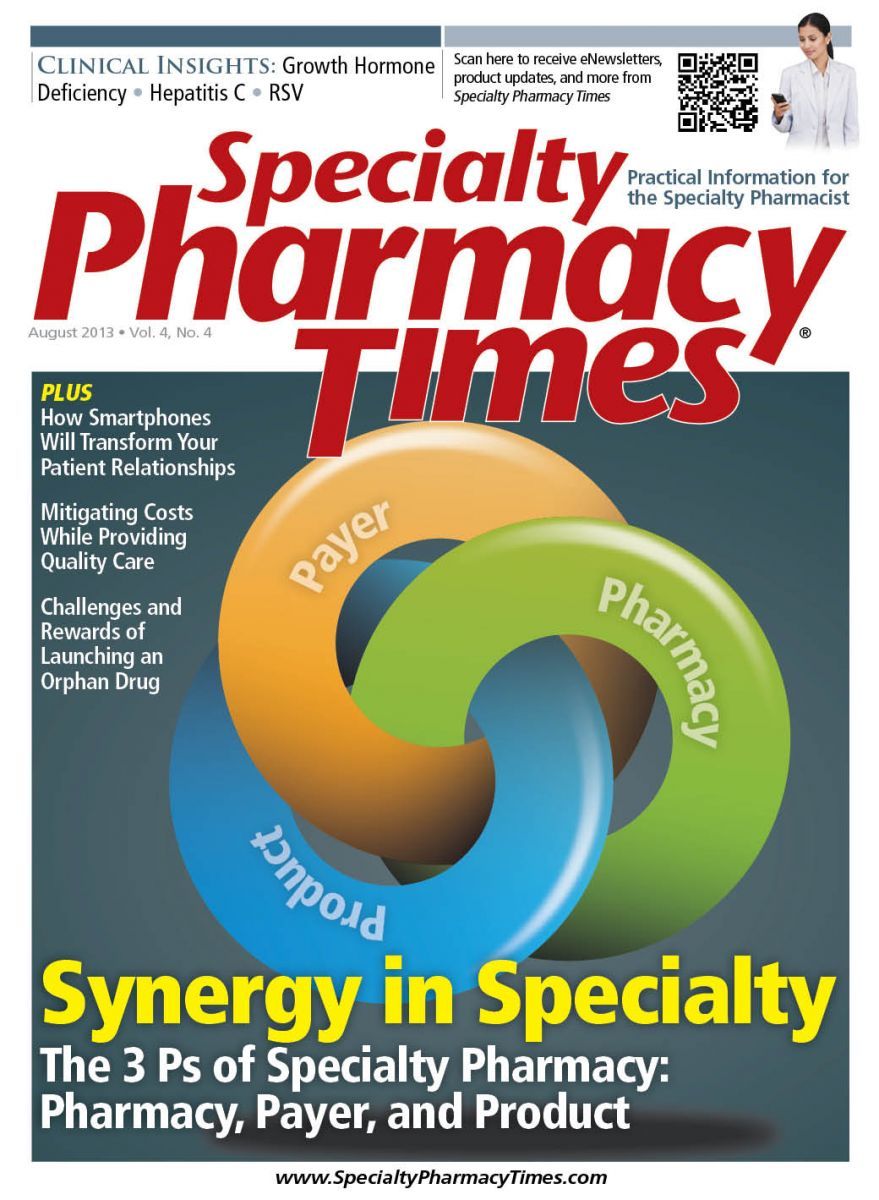Publication
Article
Specialty Pharmacy Times
Adding a Specialty Pharmacy to Your Retail Brand
Author(s):
With the growth of specialty pharmacies in retail, there are new tracking and reporting challenges to consider and conquer.
With the growth of specialty pharmacies in retail, there are new tracking and reporting challenges to consider and conquer.
As the specialty pharmacy (SP) industry continues to grow, more and more retail chains are looking to add an SP to their already successful brand. The benefits of adding one to a retail chain are material. Regional retail chains are positioned well to leverage their existing patients, payer relationships, and community presence in launching their new SP.
There are many unique considerations retail pharmacies will encounter as they grow into the specialty business. One key to success is to understand which current retail systems and processes can be leveraged or enhanced and which must be redesigned, and then apply the best technologies to support the new SP.
IDENTIFYING THE OPPORTUNITY
To maximize the business opportunity, the new SP should leverage and mine the extensive fill history data maintained within the retail infrastructure to identify both patients and providers who will benefit from the new SP. The SP should identify patients who either are currently being turned away because the retail pharmacy does not dispense the specialty drug or for whom they are currently filling specialty prescriptions at retail. It is also important to identify medical providers and hospitals in the community who are prescribing specialty and approach them to refer patients. An added benefit is if the new SP has the technological ability to integrate directly with the hospital systems to dispense specialty medication to patients as they are discharged.
WORK FLOW ENROLLMENT AND PATIENT CARE MANAGEMENT
The differences between specialty and retail are especially evident in the operational areas of enrollment and patient care management and their respective work flows. While patient intake is already part of the retail process, the data requirements and approvals in specialty patient enrollment are significantly different from retail and will require enhancements to or replacement of the pharmacy management system. Sophisticated care management programs also may require technologies greater than those that exist currently within the retail software package.
SP patient and provider interactions can be more in-depth and complicated compared with those associated with retail dispensing, and the systems and processes within the SP must manage these additional interactions efficiently. Regardless, both enrollment and care management need to be orchestrated through configurable work flow.
PRODUCT PRICING
Specialty pharmacy pricing is determined differently from retail and there are several additional pricing considerations to track and report. Because pricing is more complicated, the payer requires the SP to own tracking and implementation of the contracted rates, and then requires annual audits to ensure that the contractual price is followed. Sometimes this rate is still a markup off the average wholesale price, but other times contracts require pricing to be a markup of acquisition cost. Acquisition cost can be computed as either the weighted average or replacement cost—the particular method to be determined by each pharmacy. The additional complexity of pricing requires the SP to be capable of managing and tracking the additional data. On the other hand, some factors that are very important in retail are not as relevant in SP, specifically tiered pricing based off quantity dispensed and minimum pricing logic.
INVENTORY
As with pricing, inventory management in specialty contains some additional complexity. While many drugs will still be purchased from the wholesaler, some drugs can only be purchased through manufacturers. SP inventory systems that manage and order inventory must be able to track and follow the individual requirements for each drug’s purchase and sometimes report back to the manufacturer. In addition, turnaround time from the initial purchase order to the actual delivery of a particular specialty drug might take days rather than hours. Inventory systems must factor in this delivery lag in order to ensure sufficient inventory.
Depending on the specifics of the SP rollout, it may be important that the retail and SP systems have the ability to easily share information. This integration may include patient data, prescription fills, and provider information. Among other functions, this integration would then support drug utilization review, clinical reviews, and call tracking. Lastly, if business requirements allow for having patients pick up their specialty medications at a local retail store, additional system integration may be required to collect patient signatures, copays, and/or outstanding balances.
Reporting is a critical additional requirement in SP and is essential to ensure correct reimbursement. The back end system must report utilization data to payers and manufacturers including such data as volume of calls, turnaround time for patients, signatures for mailed packages, and length of time to receive prior authorization. Because this functionality is critical to an SP and is a new requirement in transitioning to specialty, it is important that reporting processes be robust, flexible, and easy to use.
While the business opportunities are numerous for regional chains dispensing specialty medications from a branded SP, the key to success lies within the rollout execution. Synergies will exist between retail and SP for regional chains, but the key is to apply the right technologies to capture them.
About the Author
Jim Maguire is the chief executive officer of BioMed Intelligence, Inc, a firm specializing in health care information technology support solutions. With more than 20 years of experience, he was formerly the chief information officer of a top pharmacy benefit manager and also led information technology operations at a leading specialty pharmacy. He also serves on the editorial board of Specialty Pharmacy Times. He can be reached at 347-847-3570; [email protected]; www.biomed-intelligence.com.

Newsletter
Stay informed on drug updates, treatment guidelines, and pharmacy practice trends—subscribe to Pharmacy Times for weekly clinical insights.






